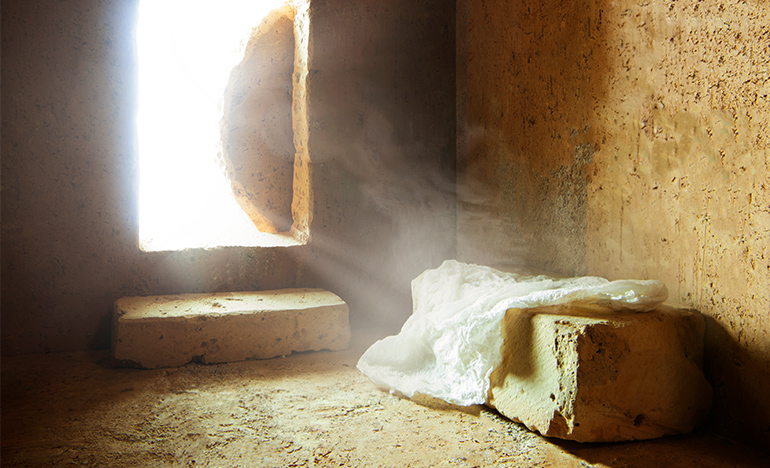“I am the resurrection and the life. The one who believes in me will live, even though they die; and whoever lives by believing in me will never die. Do you believe this?” (John 11:25–26)
Jesus spoke these words to a woman named Martha after the death her brother Lazarus, who was one of Jesus’s dearest friends. He tried to comfort Martha in her grief by assuring her: “Your brother will rise again” (11:23). Martha assumed that Jesus was referring to the resurrection of the dead at the end of time, and so she replied, “I know he will rise again in the resurrection at the last day” (v. 24). But Jesus had something more immediate in mind.
Likewise, Martha viewed this future resurrection as something distant and remote. But she completely missed the fact that the true source of life and resurrection was standing right in front of her. Jesus boldly states, “I am the resurrection and the life”!
Shortly after graduating from seminary, I was asked to speak at the funeral of a man named Frank Nelson, who was the father of a dear friend. I had never spoken at a funeral before, and I decided to use this passage from John’s gospel. While preparing my message, I discovered that Jesus is actually making two significant claims, although they are closely related.
His first claim is “I am the resurrection,” which he explains by saying that “the one who believes in me will live, even though they die.” Many people today believe that when they die they will live eternally as disembodied spirits. But that notion comes from ancient Greek culture, not from the Bible. I assured those at the funeral that even though Frank Nelson had died, he would one day be resurrected from the dead, and his body and spirit would be rejoined forever. His new body, however, would not be like the old one, which was subject to decline, disease, weakness, and death. Instead, as the apostle Paul explains, “The perishable must clothe itself with the imperishable, and the mortal with immortality” (1 Corinthians 15:53). Our current bodies are not fit for eternity. But our resurrection bodies will be immortal and imperishable.
Jesus’s second claim is that he is “the life,” which he explains by adding, “Whoever lives by believing in me will never die.” To those attending the funeral that day, Jesus’s statement that those who believe in him will never die must have seemed hollow—even cruel. Frank Nelson had believed in Jesus, and yet he had died and was lying in a casket right in front of us.
But Jesus was not claiming that those who believe in him would never die physically. Clearly, our bodies will die and will need to be raised from the dead. Instead, Jesus was focusing on the moment of death, when we draw our last breath and then die. I have always wondered what that moment will be like, and to be honest it is somewhat frightening. My father-in-law, who is now deceased, once said: “Everyone wants to go to heaven, but no one wants to die to get there.” I agree!
Yet Jesus tells us in advance what we might expect, and his words are full of encouragement and hope. Even though our bodies at that final moment will die, everything else we are—whether we call it our spirit or soul or personality—will not die. Instead, we will make a transition from life in this world to life in the next. And in that very important sense, we will never experience death. A famous preacher who lived in the Victorian Era once said, “Someday you will read in the papers, ‘D. L. Moody of East Northfield is dead.’ Don’t you believe a word of it! At that moment I shall be more alive than I am now.”4
At the funeral of Lazarus, Jesus didn’t merely claim to be “the resurrection and the life,” he proved it. He walked to the tomb where his friend’s body had been for four days, and asked that the stone covering the entrance to the burial cave be removed. “Then Jesus looked up and said, ‘Father, I thank you that you have heard me. I knew that you always hear me, but I said this for the benefit of the people standing here, that they may believe that you sent me.’ When he had said this, Jesus called in a loud voice, ‘Lazarus, come out!’ The dead man came out, his hands and feet wrapped with strips of linen, and a cloth around his face. Jesus said to them, ‘Take off the grave clothes and let him go’” (John 11:41–44).
Reflect:
How does it affect your view of death to understand the dying of the body as a transition from one life to another life?
4 https://www.crossroad.to/Quotes/faith/moody.htm

